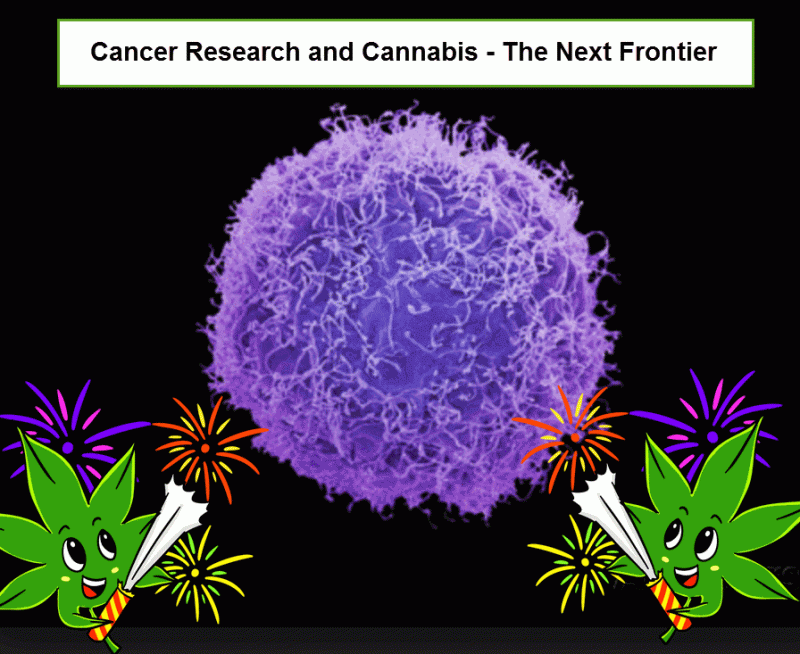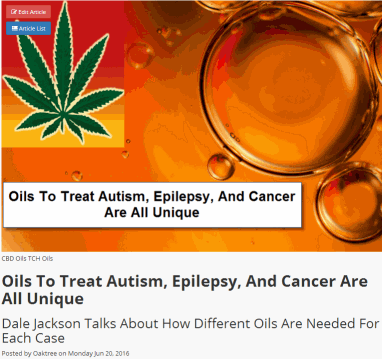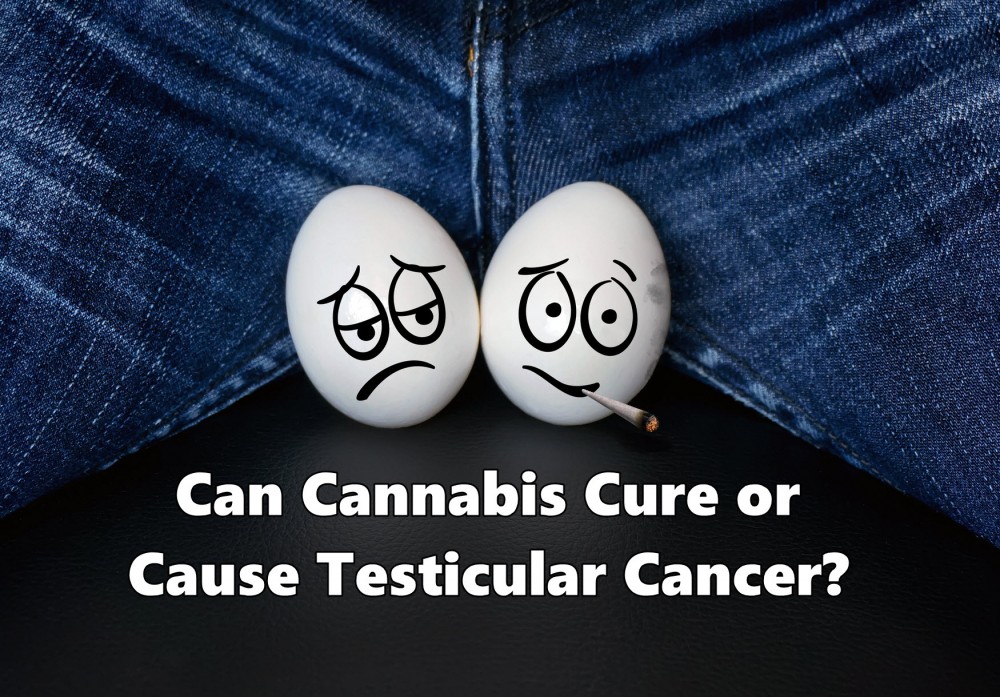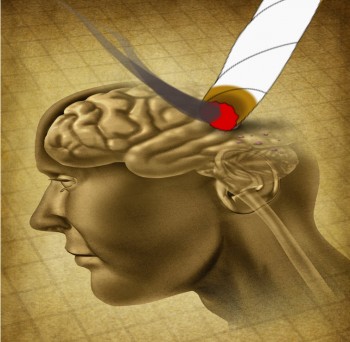Curing Cancer With Cannabis: Is It True?
by
Catherine Hiller
Curing Cancer with Cannabis? Wait, Is That True? from CannabisNet on Vimeo.
For many years, I worried about the damage I was doing to my lungs by smoking pot. I felt that if tobacco smoke was dangerous, marijuana smoke had to be harmful as well. I consoled myself with the thought that I wasn’t smoking 20 or 40 marijuana cigarettes a day (one or two packs) but just one midsize joint. Still, I was concerned about the seeming connection between marijuana and lung cancer. And I was not alone.
The Big Surprise
In 2006, pulmonologist Donald Tashkin at UCLA was in charge of a large study to measure the danger of smoking pot. He expected to find that marijuana posed similar risks to tobacco, increasing the likelihood of lung cancer, emphysema, and COPD. He and his team were astonished to discover that there were no such risks, even among heavy cannabis consumers. Indeed, the heaviest smokers had a slightly reduced risk for lung cancer (the most common cancer in America), leaving Tashkin to wonder if marijuana actually had a protective affect.
Barriers to Research
Dr. Tashkin was able to get funding for his study because he was examining the dangers of marijuana. Any study examining its benefits in humans will not get funding from the National Institute of Drug Abuse or from any other federal source. It is difficult to study cannabis because in most of the country it is illegal. And in the US, despite thousands of years of medical use, marijuana is (mis)labeled a Schedule I drug: highly addictive and of no medical value. Furthermore, any research using federal money must use marijuana grown at the University of Mississippi, which is apparently of poor quality.
No surprise, then, that in the US, it is difficult to investigate the claim that cannabis can cure cancer.
International Studies
In other countries, however, the claim is being given serious study. In Spain, Dr. Juan Sepulveda believes that cannabis works well against gliomas (brain cancers).
Because of their fatty composition, cannabinoids can slide through the blood-brain barrier and attack cancer cells in the brain. He’s “making good science independent of pharma” by conducting an independent trial in humans with gliomas to determine cannabis effectiveness and ideal dosing. When Dr. Manuel Guzman of Madrid injected THC into brain tumors in rats, the tumors shrank. By using cannabinoids, he says, “We are stimulating a natural system that is already there.”
Father Cannabinoid
Israel’s Raphael Mechoulam, the father of cannabinoid research, discovered THC in 1964 and the endocannabinoid system in the 1990s. He coined the term “entourage effects” to describe how THC, CBD and other cannabinoids in marijuana work best together. At 85, Mechoulam is still excited by the potential for cannabis medicine. He notes that it has effectively treated various kinds of tumors – breast, prostate, liver – in mice. “Unfortunately, well-designed human trials have not been done. It is unbelievable that neither government agencies nor private foundations have gone ahead or encouraged clinical trials – but this is a fact! There are no real published clinical trials with cannabinoids against any cancer!”
Until there are well- designed clinical trials, we will not know whether cannabis can cure cancer in humans. There are, however, strong indications that it might.
True Sensation
The headline of the article in Wake Up World reads, “100 Scientific Studies Agree Cannabis Annihilates Cancer.” It may seem sensational, but it actually understates the case: at www.cancer.gov, the website for the NIH Cancer institute, if you put “cannabis” in the search box, you get 135 results. A study in Molecular Cancer Therapeutics, for example, shows that CBD down regulates aggressive breast cancer cells in mice. The journal Blood reports that cannabis both aids other chemo drugs and independently kills cancer cells in the test tube. The Journal of Clinical Investigation reports that in animal tests, cannabinoids were effective against melanoma and other skin cancers.. The list goes on, with promising research about cancer cell death in uterine, testicular, prostate, lung cancer and lymphoma. What works in the test tube or in mice does not necessarily work well in people, but it certainly should be investigated.
An Exciting Study
Epidemiology is the study of health in populations to understand the causes and patterns of health and illness. An epidemiological study looks at a particular group over time and can be useful at teasing out unexpected links. The National Cancer Institute reports that 84,000 men took part in the California Men’s Health Study. After 16 years, and adjusting for various factors, rates of bladder cancer were found to be 45% lower in cannabis users. This is certainly good news, but if cannabis is a potent anti-cancer agent why didn’t the incidence of all cancers drop in the cannabis users? As the Spanish researcher Dr. Juan Sepulveda says, without focused studies, “We have only stories.”
Anecdotal Evidence
And what stories they are! Individual stories about cannabis curing cancer are often dismissed as being merely “anecdotal evidence”: hearsay, not hard facts. Yet when person after person attests to remission after using marijuana products, it’s hard to remain completely skeptical. Here are a few comments after a recent article in Greenflower Media:
Stage 4 Neuroendocrine cancer of the pancreas and Liver high grade to remission. It took me 1 year on cannabis oil to get a clear scan. This is an incurable cancer with microscpoic cells most likely still in my body. BUT I have had 3 clear scans..I continue with a maintenance dose for life.
Cannabis oil provided the cure for my stage 4 pancreatic cancer. 3 DX of pancreatic cancer and discharged from UCLA with "Sorry. We can't help you. You could try chemotherapy with only a 5% survival rate or take this bag of oxy's to relieve your pain." I obtained hi THC cannabis oil and cured the cancer within 4.5 months. I've has 2 MRI's in the last 4 months and have been declared cancer
I'm a resident of Colorado and grew my first legal cannabis in 2014. I made RSO (Rick Simpson Oil) following his online instructions and then used the oil topically on a very nasty basel cell carcinoma on my left ear that had returned after having it surgically removed about 8 years earlier and after 6 days of applying the oil to the area, it dissolved and is clear.
But How Does It Work?
In the test tube and in mice, cannabis fights cancer three ways. It is antiproliferative, blocking cancer’s ability to metastasize. It is anti-angiogenic, suppressing the blood vessels tumors need to grow. And it is pro-apoptopic, causing cell death in cancer cells while leaving normal cells alone.
Cannabis can be given to cancer patients in various ways. It can be smoked or vaped or swallowed (as cannabis oil in a capsule). It can be administered as an oil directly onto a tumor or it can be sprayed under the tongue. It can also be eaten, although that makes it more difficult to receive the correct dosage.
Helping With the Symptoms
However it’s ingested, cannabis is very useful in treating people with cancer. It helps alleviate pain, depression, insomnia, nausea, and loss of appetite in cancer patients.
Its curative effects may not yet be proved, but its palliative effects are striking. Dr. Tashkent says, “One medicine taken instead of five drugs with their side effects and addictions. I tell my patients that marijuana takes care of any combination of these."
For now, that’s what we know for sure. In the future, we may be able to credit marijuana with much more than helping with the symptoms. We may be able to say that cannabis sometimes cures cancer.
I still smoke a joint a day, but now instead of worrying that my health is being damaged, I’m smiling to think that perhaps it is being enhanced.
OTHER ARTICLES YOU MAY ENJOY...
OILS TO TREAT CANCER, AUTISM, AND EPILEPSY ARE ALL UNIQUE, CLICK HERE..
OR..
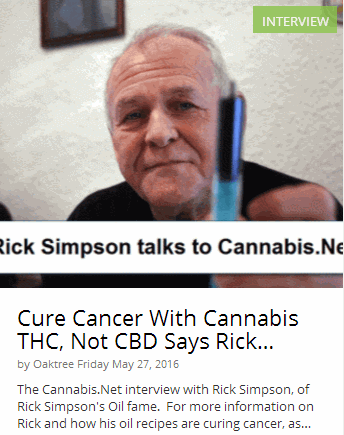
CURE CANCER WITH CANNABIS THC, NOT CBD SAYS RICK SIMPSON, CLICK HERE...
